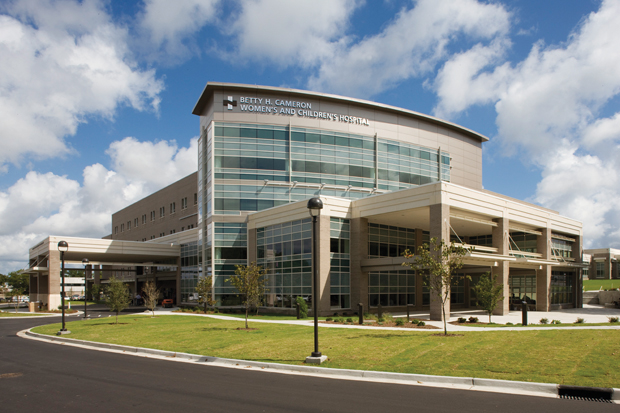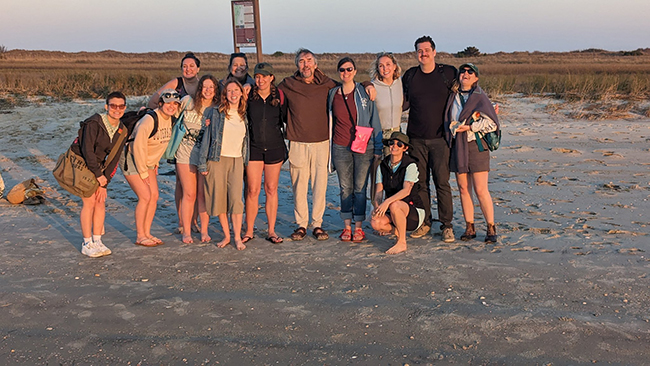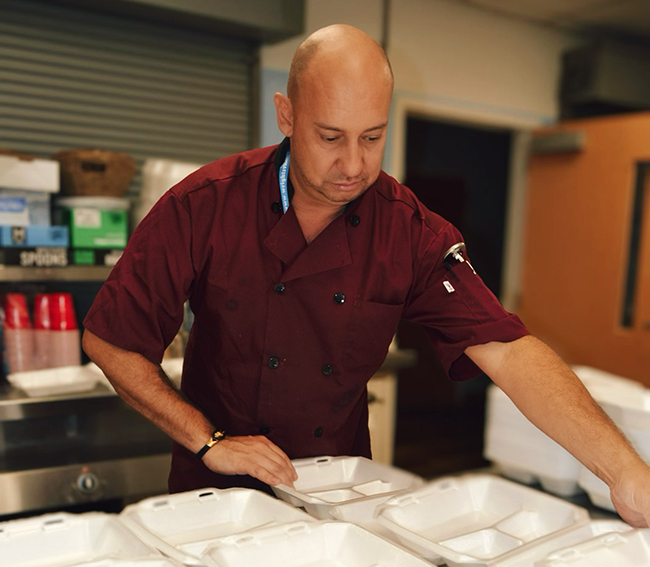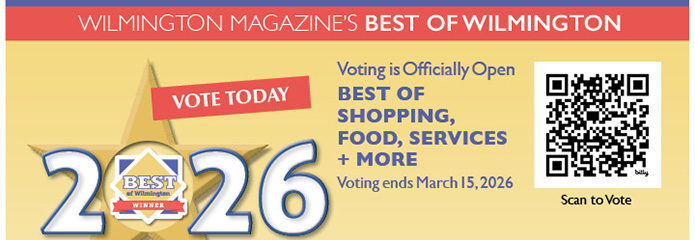Wilmington Walks the Walk
05 Nov 2017
County infrastructure investments yield future jobs for the Port City
By TERESA A. McLAMB
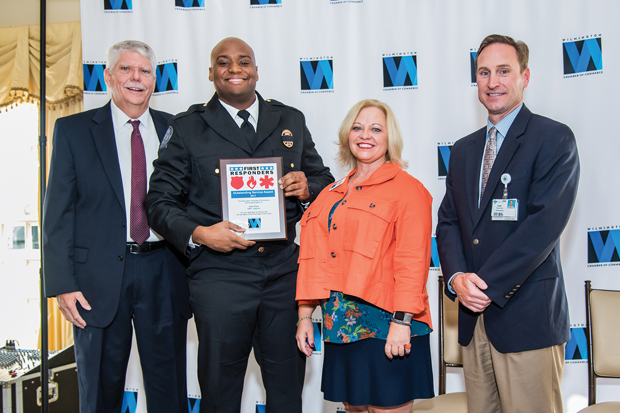
Excelling in math and science in high school led Natalie English to NC State on a scholarship requiring a major in chemical engineering and pulp and paper. She performed well in the course work, she said, but in her sophomore year “I woke up and realized I couldn’t see myself working in a lab every day. Something in my gut said ‘you don’t want to be doing this.’” Her switch to a communications major meant losing the scholarship, but it also led her down the path that would eventually bring her to Wilmington as leader of the Chamber of Commerce, in a time where the city and county are seeing exciting new growth and opportunities.
One of five daughters in a blended family, English spent a lot of time at the radio station where her father was general manager. Her first job was working for him there. “It instilled in me the importance of being a good communicator and gave me a good work ethic,” she said, adding that her dad probably held her to a higher standard than other employees.
Because losing her scholarship meant having the need for a job, she relied on her radio knowledge and connections to procure a part time position with NC Public Television at their studio on Western Boulevard in Raleigh. “They did a nightly news show on the legislature, so I worked on it – whatever they would let me do.” English not only learned a lot about the television business, she learned a lot about the legislative business. “I fell into an entirely different career all together.”
That career would start as an assistant to a lobbyist for the National Federation of Independent Business. The exposure to advocacy and the legislative process led her to other similar positions before she was recruited to the Charlotte Chamber of Commerce as their chief lobbyist. Except for a short stint in a charitable foundation, she spent twenty years in the Charlotte chamber before accepting the position in Wilmington.
Working as a lobbyist, she said, “gave her an appreciation for membership organizations and what was needed to recruit and maintain members.” Her brief stint away from the Charlotte Chamber helped her to realize “it truly is my calling to be part of an organization that leads business leaders into the issues and efforts that make their community great. In Charlotte, we made many investments in the transportation infrastructure. I’m excited about doing that here in Wilmington. There’s so much opportunity here, and I think folks are ready to work together to address issues. We know this is the fastest growing region in North Carolina, and the people are coming. We need to do what we can to cultivate jobs so people don’t show up looking for jobs that aren’t here,” English said.
A step toward that effort is an economic development campaign called Choose Cape Fear. English described it as an effort to draw investment to the region – New Hanover, Brunswick, Pender and Columbus Counties. “We believe we’re one of the best kept secrets. When they hear Wilmington, a lot of business people still think of Delaware. We think it’s important to get the word out. The economy is so critical to our success and our health. Business decision makers from all over the world could consider us,” she said.
“The chamber must advocate to affect policies and investments by local governments,” she said. The chamber’s volunteer leadership has been working on a three to five year strategic plan that includes the Choose Cape Fear campaign. “We want the Wilmington Chamber to be a leader and facilitator in the effort to convene the region. There’s strong recognition on the part of chamber leadership that the four counties are distinctly different, but together we can improve the economy much better than if we fight with each other.”
“We’re advocating together for things like infrastructure investments. If we have a workforce that might live in Brunswick Forest, but work in Wilmington, what are we going to do to move traffic?” Another concern expressed by employers is workforce talent, so it’s important to work with the schools to assure that students are taught the soft skills to be successful such as dress, punctuality, politeness, and work hours. “It’s also important,” she said, “for area schools to react quickly to technology changes and the types of skills needed by local industry.”
That type of review includes looking at the chamber’s school, Leadership Wilmington. What happens after graduation? Is there the need for a graduate school? What else do the participants need to help them be successful leaders?
Six months into her position as a leader, English says, “it’s too early to know where the chamber or the community should be in five years or ten years.” She does know that one of the chamber’s primary jobs needs to be to continue to create things that “help business leaders learn about issues, learn other skill sets and revenue generators.”
She has initiated joint sessions with the other chambers in the region to not only share resources, but to create programming for the benefit of members in the eight regional chambers. “We brought in the vice president of the NC Chamber to tell the group what had happened in the legislative session. They were all able to come and learn from him.” They are working on similar sessions which she says will rotate to the various chamber offices.
English said she had also learned since getting here that the chamber had seemed to some like “an exclusive club”, where only certain people are invited. “This is none of that. We invite businesses and owners and representatives to come in and participate and to share their expertise and knowledge. I’m about an inch deep and a mile wide on knowledge, but have a wealth of access. We’ll be creating more obvious ways for people to plug in. We invite everybody.”
Referencing the city and county’s comprehensive plan, English said our rapid growth is similar to the culture that existed in Charlotte, where policies were adopted to accommodate the fast pace of growth. “There are plans for how we should grow, not to control growth. We know it’s coming [here]; we must have planning so that the infrastructure is here.” Growing the economy without having a negative impact on the features that make so many people choose the Cape Fear region is at the center of planning,” she said.
“Our strongest asset is our culture, this beautiful marriage of all kinds of folks, and we embrace it. Everything from the guy that wants to hang out on a surfboard all day to the business man in his suit every day. Major companies like GE and Corning and start-ups like Untappd. Folks who graduate from Cape Fear and UNCW who stay here and create a business. Folks who retire and realize they’re not ready and create a bank like Live Oak. We have a cool beach vibe, a charming downtown. We have a culture that everybody is welcome here, and we’re not just saying it. We actually walk that walk.”


